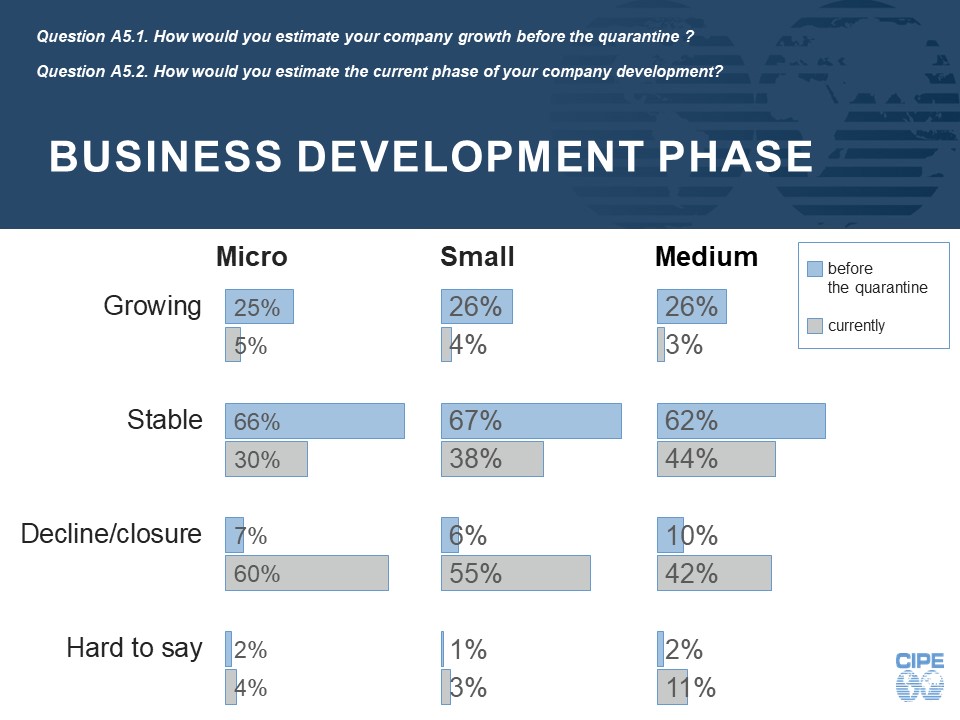The Info Sapiens team commissioned by the Representative Office of the Center for International Private Enterprise in Ukraine (https://www.cipe.org/), conducted a large-scale survey of heads and owners of micro, small and medium-sized businesses in Ukraine. We asked entrepreneurs about the barriers to business that were exacerbated during the COVID-19 pandemic, about their survival strategies at the time, and asked them to evaluate government support measures.
If at the end of the first quarter of 2020 most enterprises characterized their stage of development as "stable", then as of the middle of the third quarter (at the time of the survey) the share of "stable" enterprises halved (from 66% to 32%). The share of enterprises at the stage of recession or even closure increased by an order of magnitude (from 7% to 59%). The representatives of microbusiness have the most pessimistic attitudes – 60% of the respondents assess the current situation as a recession, while the share of such estimates among medium-sized businesses equals 42%. The share of the enterprises that assess their stage of development as "growth" has also decreased significantly (from 25% to 5%).

Reference:
Method of information collection – quantitative survey of micro, small and medium-sized enterprises (MSMEs); information collection tool – computerized telephone interview (CATI) survey.
Sample size: 1008 (one thousand eight) interviews with micro, small and medium-sized enterprises (MSMEs), including 506 interviews with private entrepreneurs and 502 interviews with legal entities. The respondents surveyed include the owners, heads or senior managers of the enterprise (for legal entities), directly individual entrepreneurs.
The sample for legal entities is representative of the size of the enterprise (micro, small, medium-sized), region and main economic activity; the sample for private entrepreneurs is representative of the region and main economic activity.
This sample size provides a marginal theoretical error of no more than 3.1% for the sample as a whole, and no more than 4.4% for private entrepreneurs and legal entities (with confidence level of 95%).
